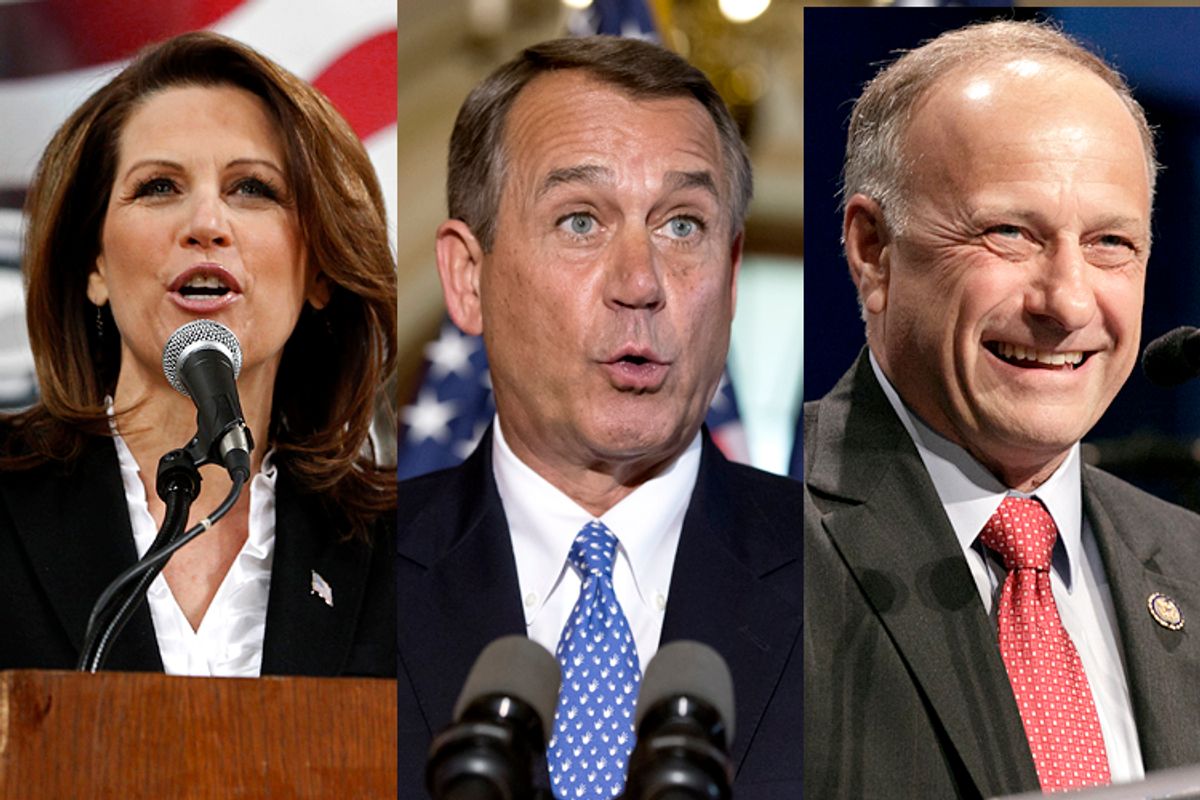The death spiral of U.S. political life has yet to see bottom. While most factual indicators suggest optimism, our public addiction to dudgeon and fury intensifies daily. Words like “negotiation,” “deliberation” and “discourse” sink into quaint anachronism alongside “phlogiston.”
The illness has many causes. Tsunamis of money in politics. Cable “news” networks push one side, denying loyal viewers any hint of refutation. Glancing at the red-state/blue-state map suggests that “deep culture” is reigniting the American Civil War. These factors aren’t easy to solve.
However, one malignant force could be staunched almost overnight, with a simple trick. It requires no legislation, court action or leadership from our sclerotic political caste. Mere citizens – one at a time -- could neutralize gerrymandering.
We all know the scam, inflicted on U.S. voters by both parties, often in collusion. Cynical manipulators have made a high art of crafting bizarrely shaped, convoluted districts for Congress and state legislatures. We’re told it’s meant to advantage the majority party in a state, letting it eke out extra seats by cramming minority party voters into rigged ghettos of Democrats in (say) Texas or Republicans in Maryland. But that’s not the real purpose.
Proof came in 2010 when California voters rebelled. Via ballot proposition, they handed district-drawing to nonpartisan commissions. California’s Democratic Party begged the mostly Democratic populace not to, fearing the GOP might benefit. But lo, post-gerrymandering, Democrats surged to win more statehouse seats.
Democratic politicians still fretted, because many of their personal districts were now more evenly balanced. On average, each might see only a 55 percent or 60 percent Democratic majority – an advantage, but not safety.
The California experiment – including open primaries and top-two runoffs – was hugely successful. In heavily Democratic districts, the runoff between two Democrats produced a weird epiphany: “Hey, this district consists of one-third Republicans who could tip the balance. Let’s reach out to them!” Minority-party voters got leverage. Their calls were answered. No one expected this.
Voter uprisings against gerrymandering have happened in half a dozen blue states, but not once in a red state, like Texas, where Democrats feel herded and disenfranchised, where gerrymandering has its Michelangelos. Indeed, political handicapper Stuart Rothenberg says 211 of 234 Republican seats in the House are “safe,” leaving only 23 competitive.
In fairness, Democratic states like Maryland and Illinois have their own gerrymandering da Vincis.
Unforeseen Consequences
Now the iron law of unexpected outcomes takes hold, for gerrymandering’s top malignant effect has been radicalization of U.S. politics. Having engineered for themselves safe districts where the minority party has no chance, cynical politicians have rendered November Congressional elections moot. Yet, safety eluded them, as this only shifted tension to the primary; recent Tea Party insurrections show how a district’s most vociferous 5 percent can oust established representatives or bully them into cartoonish agendas.
Now consider: Gerrymandering lumps birds-of-a-feather till each district is “owned” by one party or another. Democratic voters in a Republican-owned district - or Republicans in a Democratic-owned district – will never cast a vote of legislature in the only election that matters: the majority party’s primary.
Unless…
…unless you hold your nose and re-register with whatever party owns your district. This holds, whether you’re a Democrat in a Republican district, or vice versa.
If your district is gerried to contain mostly Republicans, then it should be represented by a conservative person. But, as someone living in the district, you deserve to have some say in which conservative it will be! A Tea Party radical? Or a genteel negotiator, like Goldwater or Buckley?
Conservative radicals will scream that Democrats who attempt this kind of judo must be aimimg to sabotage the Republican primary! But any large numbers who switch will have one goal: to recover a meaningful say in a district that had disenfranchised them. They want to vote for candidates they disagree with less; this is a reasonable criterion.
Does a label change a voter’s principles? Remember Republicans of yore Abe Lincoln, Teddy Roosevelt, Dwight Eisenhower -- and sign the card! Then, next spring, you’ll vote when it matters, in the primary between Republican candidates.
The same advice applies to Republicans in Democratic-owned districts! In fact, this tactic has precedence -- generations of Republicans registered as Democrats in the old-time “solid South.” They can hardly complain now.
Reclaim our sovereignty
Picture the majority party primary in each gerrymandered district becoming the de facto general election, with all voters participating. Screaming talking heads would lose their potency overnight. Representatives could no longer pick which citizens to ignore by their party registration. Moreover, their computerized gerrymandering programs would go haywire. That, alone, will be a form of citizen revenge upon a cynical political caste.
Can’t stomach registering as a (pick your poison) Democrat/Republican? Get over it. Partisan labels made this mess. Grin at your friends’ shocked reactions. Then recruit them, rebelling against a political scam.
If 50 million Americans do this, we’ll show the politicians: “You can’t take us for granted, nor fool all the people, all the time.”

Shares